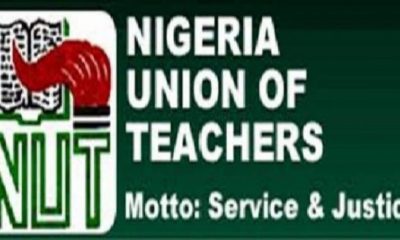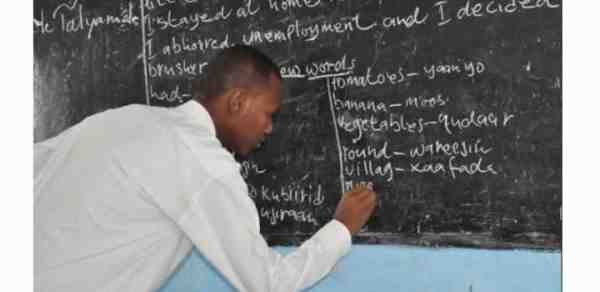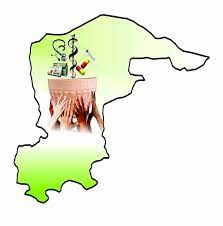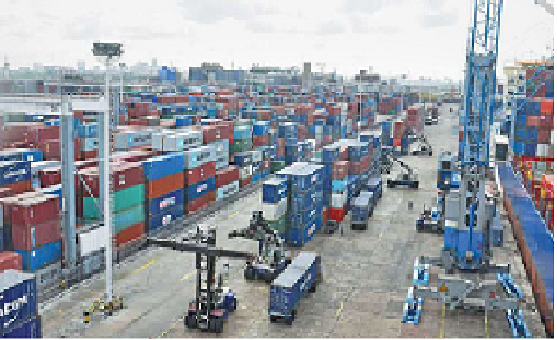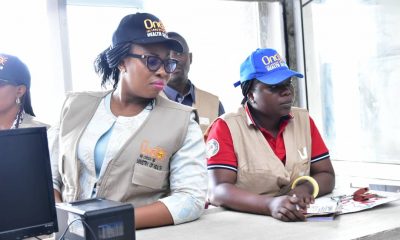Education
Strike: Blame Anti-ASUU People for Casting Aspersion out of Ignorance- Don

Dr Muhammad Sajo, a lecturer, has called on the general public to blame anti-ASUU people for casting aspersion on the Academic Staff Union of University (ASUU), out of ignorance of the university system.
Sajo, a lecturer with the Department of English and Literary Studies, Usmanu Danfodiyo University, Sokoto (UDUS), made the assertion while speaking to the Newsmen in Sokoto on Sunday.
Sajo said: ”The anti-ASUU people’s sheer ignorance of the ASUU struggle itself, or based on their envy of the ample opportunities the global university system accords academics which others out of the system don’t have.
“However, time will tell when ASUU retires to the pursuit of mainly its members’ welfare packages.
“Hence, leaving the public with the government to protest the imminent exorbitant tuition fees likely to be imposed on the system,” he said
The don added that a section of ASUU members differed within the union in the area of emphasising on the pursuit of members’ welfare, rather than facing the fight ”which isn’t theirs.”
“Nigeria’s degree programme is the cheapest globally and save for corruption which impedes the nation’s growth.
“The country can afford to give free university education or sustain its subsidy to especially, children of the masses which is the main reason for the ASUU’s struggles.
“People should note that the current ASUU strike is the mother of all strikes which we support because, it is the one which specifically encapsulates members’ welfare package.
“This is from the little stipends being on the payroll for over a decade,” he added.
On the ‘no work, no pay’ slogan by the government, Sajo said ”many people speak ignorantly by supporting the position on the matter.
“This is not knowing that academics don’t eat free salary, no matter how long they stay off the class due to the strike.
“If ASUU agrees on the position, about 5 sets of students from undergraduate to postgraduate levels won’t graduate.
“For those who aren’t aware, an academic in the system is employed to render three services: teaching, research and community service.
”During ASUU strike, only one of the three is rested, i.e. the teaching component,” he said.
The lecturer further said he was of the view that not only the latest issue of the ‘no work no pay’ slogan, the entire issues can be resolved within a day, ” if there is political will by the government.
“It is a fact that since time immemorial, before any ASUU strike is suspended, the union often exhibits the gesture of shifting grounds in the interest of the public.
“However, while doing so, at the moment, ASUU’s members shouldn’t be allowed to suffer casualties from actions of certain sections of the people who are wielding the sticks of power,” he added. (NAN)
Education
Varsity Don Advocates Establishment of National Bureau for Ethnic Relations, Inter-Group Unity

By David Torough, Abuja
A university scholar, Prof. Uji Wilfred of the Department of History and International Studies, Federal University of Lafia, has called on the Federal Government to establish a National Bureau for Ethnic Relations to strengthen inter-group unity and address the deep-seated ethnic tensions in Nigeria, particularly in the North Central region.
Prof.
Wilfred, in a paper drawing from years of research, argued that the six states of the North Central—Kwara, Niger, Kogi, Benue, Plateau, and Nasarawa share long-standing historical, cultural, and economic ties that have been eroded by arbitrary state boundaries and ethnic politics.According to him, pre-colonial North Central Nigeria was home to a rich mix of ethnic groups—including Nupe, Gwari, Gbagi, Eggon, Igala, Idoma, Jukun, Alago, Tiv, Birom, Tarok, Angas, among others, who coexisted through indigenous peace mechanisms.
These communities, he noted, were amalgamated by British colonial authorities under the Northern Region, first headquartered in Lokoja before being moved to Kaduna.
He stressed that state creation, which was intended to promote minority inclusion, has in some cases fueled exclusionary politics and ethnic tensions. “It is historically misleading,” Wilfred stated, “to regard certain ethnic nationalities as mere tenant settlers in states where they have deep indigenous roots.”
The don warned that such narratives have been exploited by political elites for land grabbing, ethnic cleansing, and violent conflicts, undermining security in the sub-region.
He likened Nigeria’s ethnic question to America’s historic “race question” and urged the adoption of structures similar to the Freedmen’s Bureau, which addressed racial inequality in post-emancipation America through affirmative action and equitable representation.
Wilfred acknowledged the recent creation of the North Central Development Commission by President Bola Tinubu as a step in the right direction, but said its mandate may not be sufficient to address ethnic relations.
He urged the federal government to either expand the commission’s role or create a dedicated Bureau for Ethnic Relations in all six geo-political zones to foster reconciliation, equality, and sustainable development.
Quoting African-American scholar W.E.B. Du Bois, Prof. Wilfred concluded that the challenge of Nigeria in the 21st century is fundamentally one of ethnic relations, which must be addressed with deliberate policies for unity and integration.
Education
TETFund Trains 1,000 Students, 15 Staff in Bauchi Varsity

The Tertiary Education Trust Fund (TETFund) on Monday trained 1,000 students and 15 staff members of Sa’adu Zungur University (SAZU), Bauchi, on career development.
Vice Chancellor of the university, Prof. Fatimah Tahir said that the training reflected the institution’s commitment to preparing students for both academic achievement and professional excellence.
The training had the theme: “Empowering Future Professionals: Mastering Career Tools, Building Networks, and Navigating Opportunities.
’’Tahir said that the workshop focused on building the capacity of nominated Faculty Career Officers and dedicated staff who would serve as faculty anchors for future career programmes.
She commended TETFund for supporting the establishment of the university’s Career Service Centre, saying its intervention was transformational in creating sustainable structures for students and alumni career support.
Also speaking, Dr Wasilu Suleman, Director of Human Resource and Career Development, SAZU, described the initiative as a turning point, which placed career development at the heart of academic excellence.
He emphasised their critical role as mentors, facilitators, connectors, and enablers, in helping students discover purpose, build competence, and compete in the modern labour market.
During the sessions, facilitators guided participants on resume and cover letter writing, internship and volunteer placements, mock interviews, and negotiation strategies.
One of the participants, Malam Adamu Ibrahim, said they were expected to be better equipped to navigate career opportunities, strengthen professional networks, and bridge the gap between academic learning and workplace demands.
| ReplyReply allForwardAdd reaction |
Education
Stakeholders Blame Exams Body, Parents over Mass Failure

Stakeholders in the education sector said, the mass failure in the 2025 West Africa Senior Secondary Certificate Examinations (WASSCE) stem from systemic issues attributed to the examination body, parents and the students
The stakeholders spoke in separate interviews in Abuja on Thursday.
Founder, Exam Ethics Marshall International (EEMI), Ike Onyekere faulted the systemic malpractice and deep-rooted corruption within Nigeria’s examination ecosystem.
The West Africa Examination Council (WAEC) had revealed a sharp decline in performance in the 2025 SSE results compared to the previous year.
Out of a total of 1,969,313 candidates who sat for the examination across 23,554 schools, only 754,545 candidates, representing 38.
32 per cent obtained a minimum of five credits, including English Language and Mathematics.Onyechere decried the 38.32 per cent credit pass rate recorded in this year’s examinations as a “very poor result,”
He, however, noted that the decline was not unexpected due to challenges encountered during the exams.
According to him, there were serious logistical issues during the exams such as power outages, poor supervision, and lack of proper oversight which contributed to students’ poor showing.
“I am not surprised because these logistical issues, as critical as they were, they were ignored during and after the exams.
“No person talked about how those kinds of issues should be addressed in terms of how they affected the performance of those students.
“No person talked about what happened after their papers were collected from them, when they did finish their allotted time and when there was no light.
“So these are some of the questions we need to address,” he said.
Onyechere further criticised students’ growing reliance on “magic centres” and malpractice rings, arguing that many students no longer prepare sincerely for their examinations.
He said most of the students have their mind fixed on magic centres, and other forms of malpractices unfettered and with no consequences.
He accused WAEC and its sister examination body of enabling malpractice by repeatedly failing to name and shame individuals and institutions complicit in exam fraud.
“Every year, WAEC releases statements saying schools were involved in malpractices but where are the names? Who are these schools? Who are the supervisors?
“They recycle these supervisors and protect them,” he said
Citing his experience in the Federal Ministry of Education, he alleged that past attempts to publish and blacklist indicted schools and individuals were stifled.
He praised the Joint Admissions and Matriculation Board (JAMB) for its comparative transparency, saying, “at least, JAMB names CBT centres and schools caught in malpractice and takes them to court.
Onyechere admonished WAEC to take cue from JAMB, in addressing the menace of malpractices.
For meaningful change, he called on WAEC to publish names, sanction schools, blacklist corrupt officials, and take concrete action, not just about release of statements.
He also advised students to reject malpractice, rather, discover and develop their true talents.
Also, Dr Jekayinfa Olatunji, a Fellow with the National Mathematical Centre (NMC), called for a national education emergency roundtable, reforms in exam preparation strategies, and closer monitoring of learning standards at all levels.
Olatunji said until tangible solutions are implemented, the futures of millions of Nigerian students would hang in the balance.
“In 2024, no fewer than 1,805,216 students sat for waec exams out of which 1,332,089 students passed at least 5 subjects including English Language and Mathematics at credit level and above, representing 72.12 per cent pass.
“Ordinarily, the results may seem good, but, what about the remaining 27.88 per cent who didn’t get five credits with English Language and Mathematics?
“The students might not have progressed in their education that year.
“Now, the worst has happened in 2025. Out of 1,969,313 students who sat for WASSCE exams, only 38.32 per cent passed five subjects including English Language and Mathematics.
“The remaining 68.68 per cent didn’t pass five subjects including English Language and Mathematics.
“What this means is that only 754,641 students out of 1,969,313 succeeded in having scores that could earn them tertiary institution admissions,” he said
He advised the education stakeholders to take proactive steps to forestall a repeat of the woeful performance in 2026.
Similarly, a civil servant and a parent, Ijeoma Osita, attributed the poor performance in the examination to both students’ attitudes and the role of parents in fostering academic irresponsibility.
Osita decried increasing culture of academic laziness among students and misplaced priorities by parents.
She further lamented that the quality of learning was fast diminishing due to an over-dependence on technology without critical thinking and originality.
According to her, many students no longer commit themselves to studying or building academic discipline, choosing instead to rely heavily on shortcuts such as Artificial Intelligence (AI), examination malpractice, and plagiarism.
“From what I have observed, many students are not ready to go the extra mile to study, build their capacity and equip themselves academically.
“They rely so much on AI and ‘expo’. Unfortunately parents endorse the negative trend, in having their children pass exams.
“They fail to harness the potential in their children by encouraging them to study harder, or even employ extra hands to coach them in the areas of weakness.
“The parents prefer to hire “machinery,” sometimes to write exams for their children.
“Some will even encourage and finance their children to leave the school, where they have attended for years, to register them in ‘miracle centres’,” she said.
She urged parents to take more responsibility in guiding their children, stressing the importance of discipline, hard work and quality education over superficial success.
| ReplyForwardAdd reaction |




